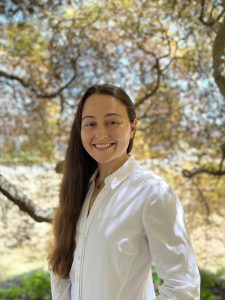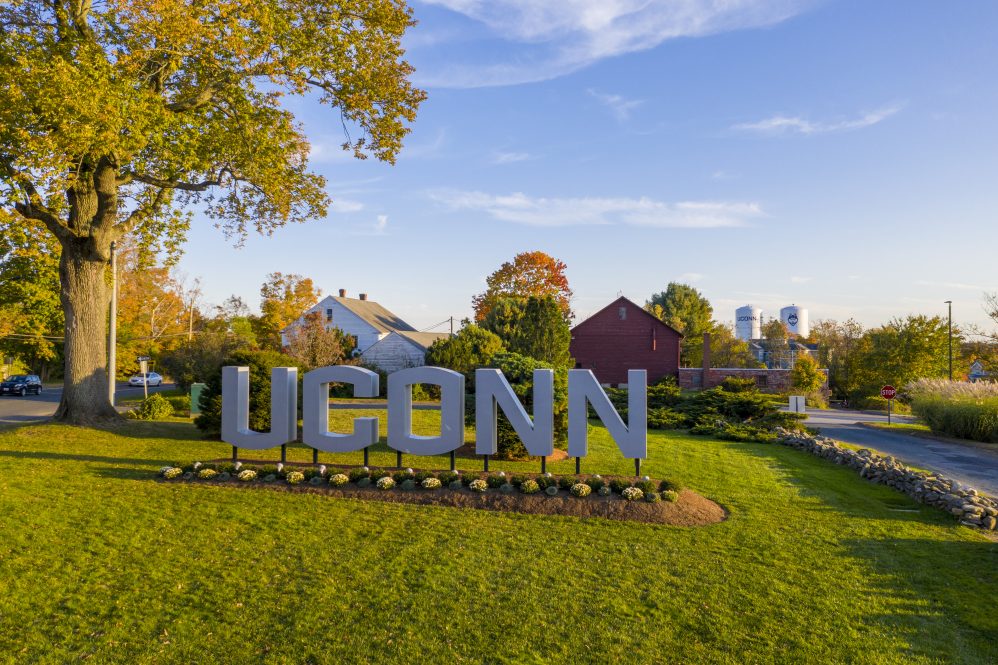Haley Brennan ’20 (CAHNR) has been awarded a fellowship worth $8,500 by Phi Kappa Phi, the nation’s oldest and most selective collegiate honor society for all academic disciplines. Brennan is one of 62 recipients nationwide to receive a Phi Kappa Phi fellowship for the 2023-24 academic year.
Brennan received a dual bachelor’s degree from UConn in environmental health and then an individualized major in spirituality, culture, and health. She recently began a dual degree program at the University of Miami to pursue a doctor of medicine degree and also a master’s of public health.

A native of New London, Brennan began her UConn career studying environmental health and was interested in learning about the impact of toxins on people’s well-being and how the environment affects health.
“This got me interested in the social determinants of health, so I created my second degree to explore how the social and cultural aspect of a person’s life can affect their well-being,” says Brennan.
Brennan did undergraduate research with psychological sciences professor Crystal Park on coping with stress and how mindfulness and practices such as meditation can be used to help individuals. She also engaged in undergraduate thesis projects on preparing future health care workers during their undergraduate education and exposing graduate students to a more holistic picture of health beyond the traditional bio, chemical and physiological studies.
“Examining social determinants of health is important to explore how we can address healthy equity issues in the United States,” say Brennan.
She also was part of UConn’s EcoHouse learning community and was a volunteer as the Spring Valley Student Farm. Brennan spent a semester studying aboard in Patagonia, Chile, where she researched that country’s culture and biodiversity.
Brennan volunteered teaching health literacy lessons in Spanish to people in Windham County as part of the Collegiate Health Services Corp and volunteered in Windham Hospital. She also performed a spring break service trip to Oklahoma to pursue Native American human rights.
As Brennan began the application process for medical school and the financial realities of it, she reached out to Lawrence Silbart, professor emeritus in the Department of Allied Health Sciences, who was her undergraduate advisor.
“He suggested that I apply for scholarships for some of the honor societies I was part of, including Phi Kappa Phi,” says Brennan. “Dr. Silbart helped me through the application process for this scholarship.”
The selection process for a Phi Kappa Phi fellowship is based on the applicant’s evidence of graduate potential, undergraduate academic achievement, service and leadership experience, letters of recommendation, personal statement of educational perspective and career goals, and acceptance in an approved graduate or professional program. Silbart is a past president of UConn’s chapter of Phi Kappa Phi.
Founded in 1897, Phi Kappa Phi is the nation’s oldest and most selective collegiate honor society for all academic disciplines. The Society has chapters on more than 325 select colleges and universities in the United States, it territories, and the Philippines. Membership is by invitation only to the top 10% of seniors and graduate students and 7.5% of juniors.
Brennan’s long-term goal is to develop a holistic primary health care clinic that offers evidence-based care inclusive of a patient’s body, mind, circumstances, culture, spirituality and environment.
“I would like to create an innovative model to address issues like chronic pain, the prevalence of hypertension and other cardiovascular diseases,” says Brennan. “The conditions are largely due to the social determinants of health and behavioral health. I want to provide support to people with dieticians and social workers.
“Only about 12% of the U.S. population are proficient in health literacy, meaning they not only have knowledge of health and understand the health information coming to them, but also understand how to navigate the very complex heath care system.”



